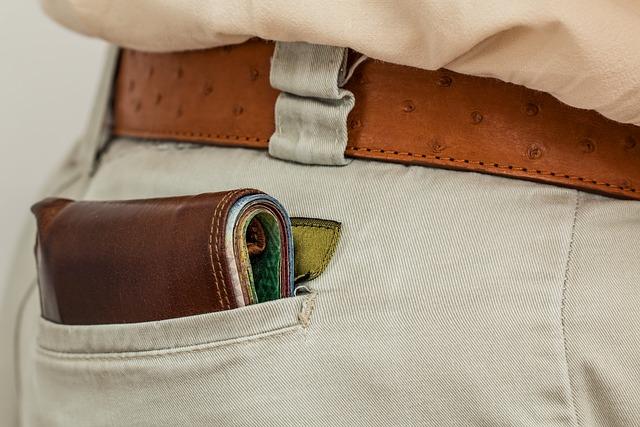
Travel Money Essentials: 10 Expert Tips for Maximizing Your Budget Abroad
Introduction:
When planning a trip abroad, one of the most important considerations is how to manage and make the most of your travel budget. Smart money management while traveling can help you stretch your funds and allow you to enjoy your trip without financial stress. In this article, we will provide you with 10 expert tips to maximize your budget when traveling abroad. From getting the best exchange rates to using budget-friendly payment methods, these tips will help you make the most of your travel money and ensure a worry-free journey.
Table of Contents:
1. Research and Plan Ahead
2. Choose the Right Payment Methods
3. Notify Your Bank and Credit Card Companies
4. Get Travel Insurance
5. Use Local Currency
6. Be Mindful of Exchange Rates
7. Avoid Dynamic Currency Conversion
8. Be Wise with ATM Withdrawals
9. Keep Track of Your Expenses
10. Utilize Technology
1. Research and Plan Ahead:
Before embarking on your adventure, it’s crucial to conduct thorough research about your destination. Take the time to understand the cost of living, local customs, tipping practices, and any potential hidden fees or charges you may encounter. By planning ahead, you can set a realistic budget and be better prepared financially.
2. Choose the Right Payment Methods:
Using credit cards, debit cards, or cash is a personal choice, but it’s essential to consider the pros and cons of each option. Credit cards offer convenience and security, but may incur foreign transaction fees. Debit cards can also be convenient, but check if your bank charges fees for international ATM withdrawals. Carrying some cash is advisable for emergencies or in places where cashless payments are not widely accepted.
3. Notify Your Bank and Credit Card Companies:
Banks and credit card companies have systems in place to detect unusual spending patterns, which may result in your card being blocked for security reasons. To avoid this inconvenience, inform your financial institutions about your travel plans, including the countries you’ll be visiting and the duration of your trip. This simple step will help ensure that your cards remain accessible during your travels.
4. Get Travel Insurance:
Travel insurance is a must-have when traveling abroad. It provides coverage for medical emergencies, trip cancellations, lost baggage, and more. While it may seem like an additional expense, it can save you a significant amount of money in unforeseen circumstances. Research and compare different travel insurance policies to find the one that suits your needs and budget.
5. Use Local Currency:
Using local currency for your day-to-day expenses can help you save money. Avoid currency exchange counters at airports or tourist areas, as they often charge higher commissions and offer unfavorable exchange rates. Instead, withdraw local currency from ATMs or exchange money at local banks for better rates. Also, be sure to carry small denominations for convenience, as some places may have difficulty providing change for larger bills.
6. Be Mindful of Exchange Rates:
Exchange rates fluctuate constantly, and even small variances can impact your travel budget. Keep an eye on exchange rates and consider exchanging your money when rates are more favorable. There are various currency exchange websites and apps that can provide real-time exchange rate information, helping you make informed decisions.
7. Avoid Dynamic Currency Conversion:
When paying with a credit card abroad, you may be given the option to use your home currency for the transaction instead of the local currency. This is known as dynamic currency conversion (DCC), and it may seem convenient, but it often results in unfavorable exchange rates and additional fees. Always choose to pay in the local currency to avoid unnecessary charges.
8. Be Wise with ATM Withdrawals:
ATMs can be a convenient way to access cash when abroad, but they can also come with fees. Some banks charge you a fee for international withdrawals, and there may also be additional charges imposed by the ATM operator. To minimize these fees, withdraw larger amounts less frequently. Additionally, look for ATMs affiliated with your bank or within large trusted establishments to ensure a safe and reliable transaction.
9. Keep Track of Your Expenses:
It’s easy to lose track of your spending while caught up in the excitement of travel. However, it’s important to stay on top of your expenses to avoid overspending. Use budgeting apps or keep a travel journal to record your daily expenditures. This will help you identify areas where you may need to cut back or adjust your budget accordingly.
10. Utilize Technology:
Take advantage of technology to help you manage your travel money more efficiently. Use apps to convert currencies, compare prices, and find budget-friendly accommodations and dining options. Additionally, consider using prepaid travel cards, which allow you to load money in multiple currencies and offer competitive exchange rates. These cards can be a secure and convenient alternative to carrying large amounts of cash.
Conclusion:
Maximizing your travel budget while abroad requires careful planning and a proactive approach to managing your travel money. By researching your destination, choosing the right payment methods, and staying mindful of exchange rates and fees, you can make the most of your travel budget and focus on creating unforgettable memories. Remember, staying informed, being adaptable, and making smart financial decisions will ensure that your trip is enjoyable and financially stress-free. So, follow these expert tips and get ready for fantastic adventures without breaking the bank.

Leave a Reply